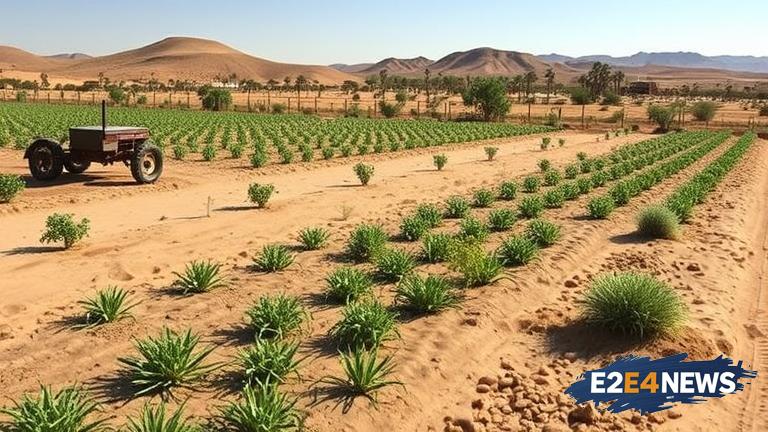In a bid to revolutionize the agricultural sector, Israel has introduced a pioneering desert agriculture project. The initiative seeks to harness cutting-edge technology and innovative farming methods to boost crop production in arid regions. By leveraging advanced irrigation systems, soil management techniques, and precision agriculture, the project aims to increase crop yields while minimizing water consumption. This ambitious endeavor is expected to have a significant impact on the country’s food security and economy. The project’s focal point is the development of resilient and adaptable crop varieties, capable of thriving in harsh desert conditions. Israeli scientists and researchers are working tirelessly to identify and cultivate these robust crop species. The project also involves the creation of advanced greenhouses, equipped with state-of-the-art climate control systems and automated farming technologies. These greenhouses will serve as incubators for the newly developed crop varieties, allowing for rigorous testing and refinement. Furthermore, the initiative includes the establishment of training programs for local farmers, providing them with the necessary skills and knowledge to implement these innovative farming methods. The project’s organizers are confident that this endeavor will not only benefit Israel but also contribute to the global effort to address food security challenges. The innovative approaches and technologies developed through this project are expected to be shared with other countries, particularly those facing similar agricultural challenges. Israel’s expertise in desert agriculture is renowned worldwide, and this project is poised to further solidify the country’s position as a leader in this field. The project’s success will also have a positive impact on the environment, as it promotes sustainable farming practices and reduces the carbon footprint associated with traditional agricultural methods. In addition, the initiative is expected to create new job opportunities and stimulate economic growth in the region. The Israeli government has expressed its support for the project, recognizing its potential to drive innovation and progress in the agricultural sector. As the project continues to unfold, it is likely to attract international attention and collaboration, further cementing Israel’s reputation as a hub for agricultural innovation. The project’s long-term goals include the expansion of desert agriculture to other regions, both within Israel and globally, with the ultimate aim of creating a more food-secure and sustainable world. With its rich history of innovation and entrepreneurship, Israel is well-positioned to make a significant impact in the field of desert agriculture, and this project is a testament to the country’s commitment to pushing the boundaries of what is possible.
